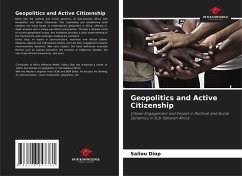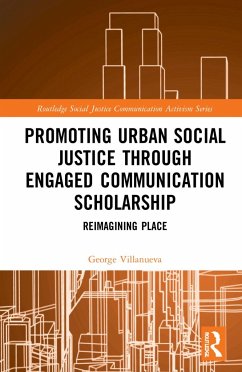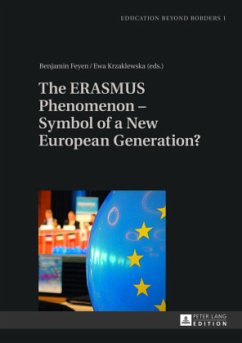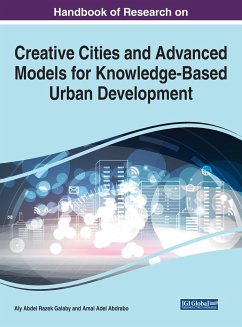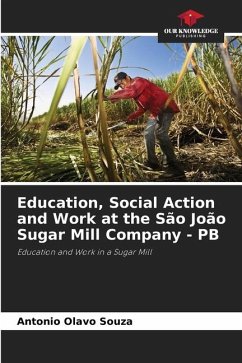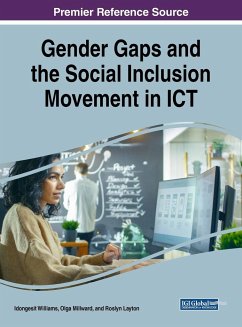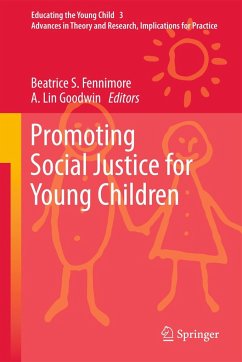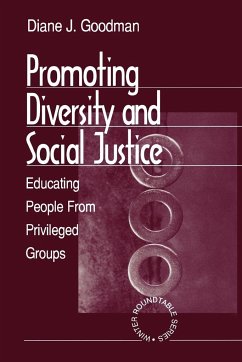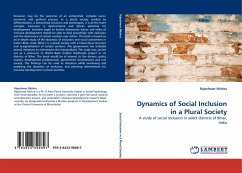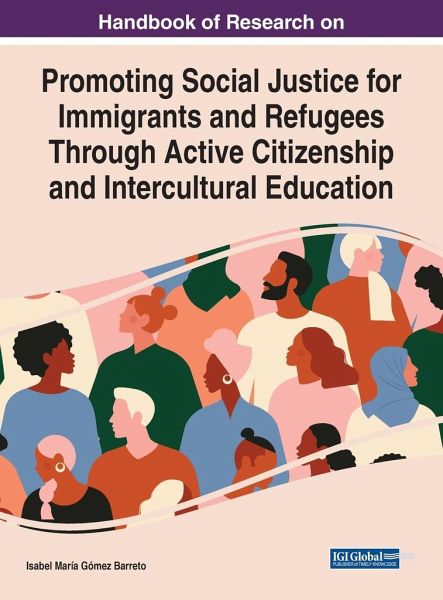
Handbook of Research on Promoting Social Justice for Immigrants and Refugees Through Active Citizenship and Intercultural Education
Versandkostenfrei!
Versandfertig in 1-2 Wochen
262,99 €
inkl. MwSt.

PAYBACK Punkte
131 °P sammeln!
Migration movements have been a constant in the societies of the past, as well as in postmodern society. However, in the past ten years, the increase in political, economic, and religious conflict amongst nations; the increase of the poverty index; and many and various natural disasters have duplicated the forced displacement of millions of people across the seven continents of the planet. This situation brings important challenges in terms of the vulnerability, inequity, and discrimination that certain peoples suffer. Professionals from the fields of the social sciences, education, psychology...
Migration movements have been a constant in the societies of the past, as well as in postmodern society. However, in the past ten years, the increase in political, economic, and religious conflict amongst nations; the increase of the poverty index; and many and various natural disasters have duplicated the forced displacement of millions of people across the seven continents of the planet. This situation brings important challenges in terms of the vulnerability, inequity, and discrimination that certain peoples suffer. Professionals from the fields of the social sciences, education, psychology, and international law share the fact that education represents an opportunity for children and young migrants to become members with full rights in the societies they arrive in. Empirical studies show that that the implementation of the right to education for migrants presents some challenges and dilemmas to the governments of host countries and more specifically to the education centers, NGOs, universities, and the professionals working in them, hence the need for more research on these issues of immigration, refugees, social justice, and intercultural education. The Handbook of Research on Promoting Social Justice for Immigrants and Refugees Through Active Citizenship and Intercultural Education provides visibility to issues such as the increase in migration and displacement and the difficulties in political agreements, educational contexts, and in cultural issues, stigmatization, vulnerability, social exclusion, racism, and hatred amongst host communities. This book gives possible solutions to this current complex situation and helps foster and promote sensitivity, perspective, and critical thinking for a respectful and tolerant coexistence and promotion of equity and social justice. The chapters promote cultural diversity and inclusion in classrooms by offering knowledge, strategies, and research on organizational development for educational institutions and multicultural environments. This book is essential for administrators, policymakers, leaders, teachers, practitioners, researchers, academicians, and students interested in the promotion of social justice in education for immigrants and refugees.



